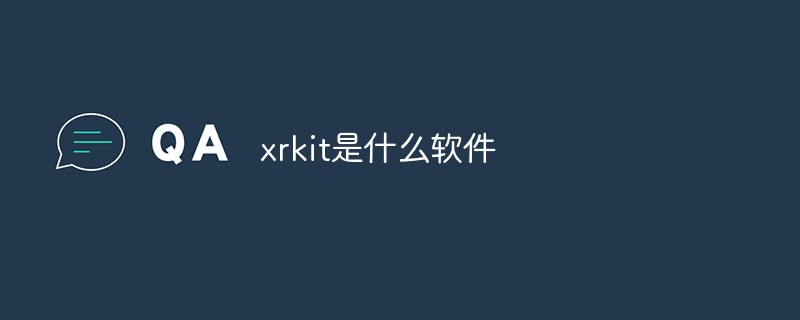How to lock a folder in Windows 11 Pro using encryption
If you are using Windows 11 Pro, you can encrypt files directly in Windows.
However, if you are using Windows 11 Home edition, then you will not be able to follow these steps and you will need to try another method.
To lock a folder in Windows 11 Pro with encryption:
- Open File Explorer and navigate to the folder you want to lock folder.
- Right-click the folder and select Properties.

- Under the General tab, click Advanced.

- At the bottom of the window, check Encrypt content to protect data.

- Click OK.
- Click Apply to apply your changes.

- Determine whether you want to apply changes to this folder only or apply changes to this folder, subfiles folders and files,and clickOK.

- If you have not done so before, you will see a message encouraging you to back up your file encryption certificate and key. Click Backup Now and follow the instructions to save a copy of the encryption key.
- Enter a strong password and click OK.
- To access a locked folder, double-click it as usual. When prompted, enter your password. You can now access your folder.
How to use WinRAR to lock a folder in Windows 11
If you are using Windows 11 Home edition or you do not want to use the built-in encryption feature in Windows 11 Pro edition, then It is possible to use third-party archiving applications such as WinRAR. You can also use an alternative like 7-Zip instead.
This application will prompt you to purchase a license, but you can use the evaluation version to encrypt and decrypt your folders.
To lock a folder in Windows 11 using WinRAR:
- Download and install WinRAR.
- Navigate to the folder you want to lock in File Explorer.
- Right-click the folder and click WinRAR.

- Check Delete files after archiving, otherwise you will have both a protected archive and an unprotected folder on your computer.

- Click Set Password.

- Enter a strong password and click OK.

- Your archive will now be created.
- To open the archive folder, double-click it in Windows Explorer.
- Double-click the folder name to view the files contained within.

- When you double-click a file to open it, you will be asked to enter your password.

- After entering the correct password, your file will open.
- If you decide that your folder is no longer locked, select the folder and click Extract to".

- Enter the location where you want to extract the folder to and click OK.

- You will be asked to enter your password. Once entered correctly, your folder will be extracted to the selected destination and unlocked again.
- If you no longer need the archive, you can delete it now.
How to lock a folder in Windows 11 using other third-party apps
There are many third-party apps you can use to lock a folder. We'll see how to use one of these. The free version of Wise Folder Hider allows you to hide files and folders up to 50 MB, or you can upgrade to the paid version to hide unlimited files and folders.
To use Wise Folder Hider to lock folders in Windows 11:Download and install Wise Folder Hider.
- Open the application. You will be prompted to create a password to log into the application. Choose a strong password and make sure it's one you can remember.
-
 To lock a folder, drag and drop it from Windows Explorer into the Wise Folder Hider window.
To lock a folder, drag and drop it from Windows Explorer into the Wise Folder Hider window. -
 Your folder will no longer show up in Windows Explorer, which means no one can open it.
Your folder will no longer show up in Windows Explorer, which means no one can open it. - To open your folder again, launch the Wise Folder Hider app.
- Click on your folder, then click the down arrow next to Open,
- then select Unhide.
 Your folder will now reappear in Windows Explorer. You will be able to open it as usual.
Your folder will now reappear in Windows Explorer. You will be able to open it as usual. - Protect Your Windows 11 Files
If you are new to PC, learning how to lock folders on Windows 11 can help protect you if anyone accesses your computer document. There are other ways to adjust settings in Windows 11 to make it more secure.
You can enable tamper protection in Windows 11 to stop any unwanted changes from being made. To increase your protection against phishing, you can also enable enhanced phishing protection.
The above is the detailed content of How to lock a folder on Windows 11. For more information, please follow other related articles on the PHP Chinese website!
 telegram是什么软件Jul 07, 2022 pm 05:05 PM
telegram是什么软件Jul 07, 2022 pm 05:05 PMTelegram是一款跨平台的即时通讯软件,用户可以相互交换加密与自毁消息,发送照片、影片等所有类型文件;Telegram有加密聊天的功能,使用这种功能,聊天双方的内容完全保密,不会担心被监控或被第三方偷窥。官方提供Android、iOS、Windows、macOS、Linux和网页版等多种平台客户端;同时官方开放应用程序接口,有许多第三方的客户端可供选择 。
 armoury crate是什么软件Jul 18, 2022 pm 03:52 PM
armoury crate是什么软件Jul 18, 2022 pm 03:52 PMarmoury crate是一款简易实用,功能全面的华硕系统控制软件;通过Armoury Crate平台,可以启动主页面上的系统性能模式调整、设置相关应用软件、获取系统信息,当机器连接支持的外设时,也可以使用Armoury Crate中所整合的Lighting、AURA Sync功能进行各种灯光特效的设定。
 xrkit是什么软件Jul 18, 2022 pm 03:13 PM
xrkit是什么软件Jul 18, 2022 pm 03:13 PMXRKit是为华为手机场景提供场景化、组件化的AR解决方案的框架软件,也就为华为相机,提供了虚拟模型在真实世界中的呈现。XRKit软件支持AR SDK,能与Unity3D引擎兼容,包括PTC Vuforia,ARKit,ARCore等。为AR呈现能力、人脸特效、光影特效;它属于华为XR生态的基础性软件。
 glance by mirametrix是什么软件Jul 28, 2022 am 10:59 AM
glance by mirametrix是什么软件Jul 28, 2022 am 10:59 AMglance by mirametrix是一款眼球追踪软件;glance是由Mirametrix开发的应用程序,软件配合红外摄像头可识别用户脸和眼睛的方向,其中主要包括了状态检测、智能指针和窗口分屏三个功能。
 推特是什么软件Jul 13, 2022 am 11:07 AM
推特是什么软件Jul 13, 2022 am 11:07 AM推特(Twitter)是一个社交网络及微博客服务软件,是一家美国的公司;Twitter利用无线网络、有线网络、通信技术进行即时通讯,是微博客的典型应用,允许用户将自己的最新动态和想法以短信息的形式发送给手机和个性化网站群。
 ldplayer是什么软件Aug 02, 2022 pm 02:59 PM
ldplayer是什么软件Aug 02, 2022 pm 02:59 PMldplayer是一款多功能Android操作系统的模拟器,通过它可以直接在PC上运行Android智能手机游戏,是将家用PC或笔记本电脑转变为运行移动软件的游戏机的方法;ldplayer可以用来进行联网,用户可以和其他人一起开启联机对战。
 rav endpoint protection是什么软件Aug 11, 2022 pm 04:06 PM
rav endpoint protection是什么软件Aug 11, 2022 pm 04:06 PMrav endpoint protection是瑞星杀毒软件;RAV是“RisingAnti-virus”的缩写,是瑞星反病毒软件的意思,瑞星杀毒软件采用获得欧盟及中国专利的六项核心技术,形成全新软件内核代码,具有八大绝技和多种应用特性。
 commercial service是什么软件Aug 11, 2022 pm 04:17 PM
commercial service是什么软件Aug 11, 2022 pm 04:17 PMcommercial service指的是商业服务软件;该软件主要为提供产品维修、系统升级、检测换机以及产品咨询等服务,服务的产品包括手机、电视、手表、耳机以及其他配件。

Hot AI Tools

Undresser.AI Undress
AI-powered app for creating realistic nude photos

AI Clothes Remover
Online AI tool for removing clothes from photos.

Undress AI Tool
Undress images for free

Clothoff.io
AI clothes remover

AI Hentai Generator
Generate AI Hentai for free.

Hot Article

Hot Tools

Dreamweaver CS6
Visual web development tools

DVWA
Damn Vulnerable Web App (DVWA) is a PHP/MySQL web application that is very vulnerable. Its main goals are to be an aid for security professionals to test their skills and tools in a legal environment, to help web developers better understand the process of securing web applications, and to help teachers/students teach/learn in a classroom environment Web application security. The goal of DVWA is to practice some of the most common web vulnerabilities through a simple and straightforward interface, with varying degrees of difficulty. Please note that this software

WebStorm Mac version
Useful JavaScript development tools

Atom editor mac version download
The most popular open source editor

MinGW - Minimalist GNU for Windows
This project is in the process of being migrated to osdn.net/projects/mingw, you can continue to follow us there. MinGW: A native Windows port of the GNU Compiler Collection (GCC), freely distributable import libraries and header files for building native Windows applications; includes extensions to the MSVC runtime to support C99 functionality. All MinGW software can run on 64-bit Windows platforms.


















 To lock a folder, drag and drop it from Windows Explorer into the Wise Folder Hider window.
To lock a folder, drag and drop it from Windows Explorer into the Wise Folder Hider window.  Your folder will no longer show up in Windows Explorer, which means no one can open it.
Your folder will no longer show up in Windows Explorer, which means no one can open it.  Your folder will now reappear in Windows Explorer. You will be able to open it as usual.
Your folder will now reappear in Windows Explorer. You will be able to open it as usual. 

